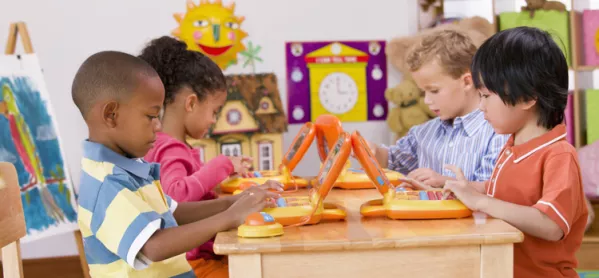Justine Greening is consulting on the “teacher-mediated” testing of young children soon after they enter primary school at the age of 4.
English children are already tested far more than children in most other countries and if our four-year-olds are tested, they will be among the very youngest children in the world to undergo a formal assessment of their abilities and achievements.
Some people think this testing is long overdue; many others think that it is not only a waste of time but it is also very damaging to young children’s confidence at a time when they are having to adjust to new surroundings and new ways of learning.
Is the testing then a welcome development or a harmful activity?
The government and even some professional associations believe that “teacher-mediated” testing is necessary to find out where children are at the beginning of their formal education, so that their progress can then be mapped out and eventually assessed at age 11 and later at age 16.
The tests are supposed to measure not only the children’s progress but also how good the schools are that they attend. It all sounds very sensible and straightforward, but is it?
Do we have the know-how to devise tests for children at such a young age? Many of us in education don’t think we do. The recent experience of finding that three proposed base-lined schemes were incompatible reinforces that view.
It has taken a long time to develop tests for 11-year-olds and yet these are far from perfect, as many parents will know from the experience of their own children.
Part of the problem lies with the children themselves. They learn in very different ways and at different rates, so developing tests that are fair to all is difficult - perhaps impossible.
‘We’ll have worried children’
Also at that age children are particularly volatile; not only do they find it difficult to sit still but they also change from day to day, almost minute to minute at times. That volatility is one of the delights of being 4! How can a test be reliable (let alone valid) given that inevitable changeability?
Children come to school with a wide range of achievements but any tests can only look at a fraction of these. Many of the most important such as self-confidence, wanting to learn, willingness to cooperate with others and a degree of personal independence cannot be measured or tested at all.
Early literacy and numeracy are important, of course, but not all-important and not as important as emotional security, which is the foundation of all school learning.
Which brings us to the effects of the tests on the children themselves. They may not fully realise the importance of the tests but they will soon pick up signals if their parents or teachers are anxious about them, as many will be.
The result will be many worried children whose worry will get in the way of their early learning and will threaten their enjoyment of the challenge of a new school.
Would you like to take a series of tests just weeks into a new job - tests that could well label you “good”, “OK” or “poor”? Presumably not, but that’s how many children will feel just weeks into school.
Lastly, the government assumes that children’s performance at age 4 or 5 can be compared meaningfully with their performance six years later. But how reasonable is that? Not only are the children taking the test as different people but also the tests themselves are different, and their results are not comparable.
Children’s wellbeing
All this leads me, and many other teachers, to believe that the tests are likely to be harmful.
Of course, we do believe that children’s achievements on entry to school need to be recognised and built upon, but not through tests conducted so early in their school lives.
We think that class teachers are best placed to find out where young children are and what they need to learn next, on the basis of observing and working closely with them during their first few months in school.
Such assessments are likely to be much more sensitive to individual children’s needs than any tests provided by the government. But they can’t be used to “measure” children’s progress.
It’s high time we abandoned that chimera.
Colin Richards is a former primary school teacher, university professor and HMI
Want to keep up with the latest education news and opinion? Follow Tes on Twitter and like Tes on Facebook




